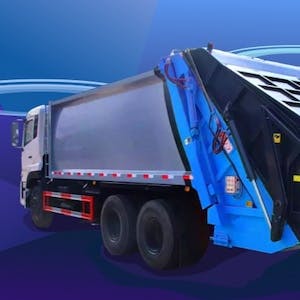- Home
- All updates
- EDGE Insights
- Industries
- Company Search
- My Watchlists (Beta)
All Updates
Altilium partners with Imperial College to analyze recycled CAM performance
N-able acquires Adlumin for USD 266 million to strengthen cybersecurity offerings
Bitsight acquires Cybersixgill for USD 115 million to enhance threat intelligence capabilities
Snowflake acquires Datavolo to enhance data integration capabilities for undisclosed sum
Snowflake acquires Datavolo to enhance data integration capabilities for undisclosed sum
Microsoft launches Copilot Actions for workplace automation
Almanac acquires Gro Intelligence's IP assets for undisclosed sum
Aduro Clean Technologies partners with Zeton to build hydrochemolytic pilot plant
Oishii raises USD 16 million in Series B funding from Resilience Reserve
GrowUp Farms appoints Mike Hedges as CEO
Rise Up acquires Yunoo and expands LMS monetization capabilities

Waste Recovery & Management Tech
Altilium partners with Imperial College to analyze recycled CAM performance
-
Altilium (formerly Altilium Metals), a London-based CleanTech startup, has produced nickel-rich cathode active materials (CAM; NMC 622), which are essential components for manufacturing lithium-ion batteries, by recycling end-of-life EV battery scrap (old electric vehicle (NMC 111) and portable electronics (LCO) batteries) at its recycling demonstration line located in Devon.
-
The company has delivered the first batch of CAM samples to Imperial College London, where they will be analyzed as part of a joint research program, partly funded by the UK Government's Automotive Transformation Fund through the Advanced Propulsion Centre (APC).
-
As part of the joint research program, Altilium Metals and Imperial College London will collaborate to compare the electrochemical performance of the CAM produced from end-of-life EV batteries with commercially manufactured cathodes made from mined raw materials. The CAM will be analyzed in coin cells and single-layer pouch cells, similar to those used in the Nissan Leaf EV, produced in the UK.
-
Analyst QuickTake: Altilium Metals has completed the feasibility study for the UK's largest planned recycling facility for electric vehicle batteries in Teesside , slated to start production in 2025. The facility will have the capacity to recover battery waste from over 150,000 electric vehicles and produce 30,000 metric tons of CAM.
Contact us
By using this site, you agree to allow SPEEDA Edge and our partners to use cookies for analytics and personalization. Visit our privacy policy for more information about our data collection practices.